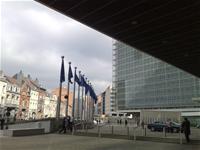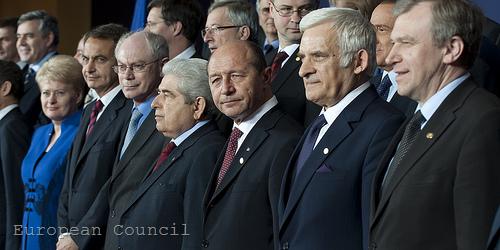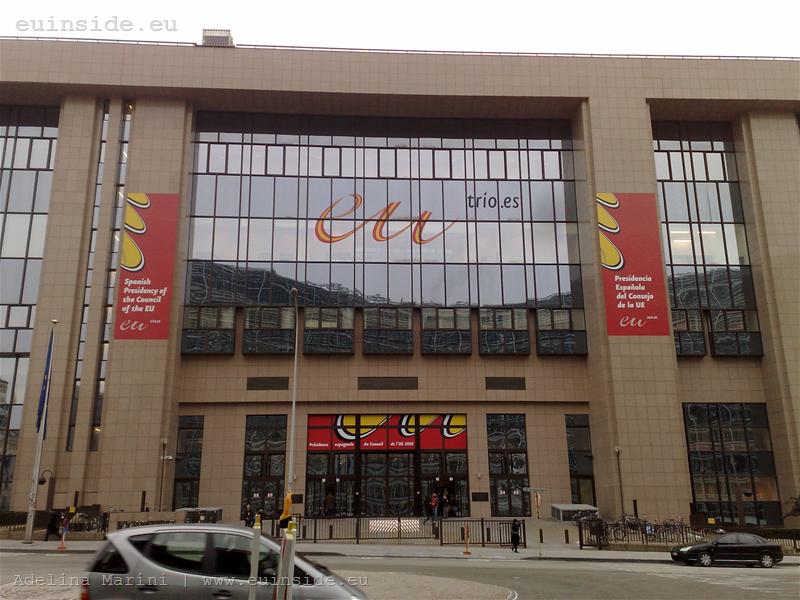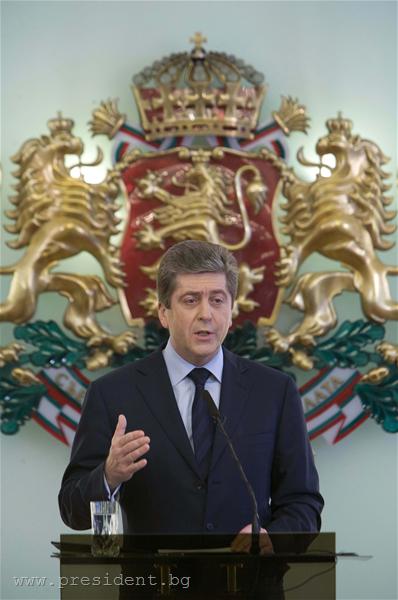The economic revival of Europe. Second cut
Vladimir Shopov*, March 23, 2010
 While something like a battle with neo-feudalism in the Bulgarian Academy of Science is going on, with a focus on the presence in it of the former communist secret service, the EU is on its way to release another impossible (for Bulgaria) task. It's true that the 52nd Bulgarian university in Pernik (40 km south of the capital Sofia), might contribute to it, but the new European Commission's strategy for economic development Europe 2020 could prove as the latest occasion, which will force Bulgaria to just "mark" its presence (after the words of president Parvanov).
While something like a battle with neo-feudalism in the Bulgarian Academy of Science is going on, with a focus on the presence in it of the former communist secret service, the EU is on its way to release another impossible (for Bulgaria) task. It's true that the 52nd Bulgarian university in Pernik (40 km south of the capital Sofia), might contribute to it, but the new European Commission's strategy for economic development Europe 2020 could prove as the latest occasion, which will force Bulgaria to just "mark" its presence (after the words of president Parvanov).
The new strategy is a successor of a not very successful one, adopted in the distant year 2000, aimed at making the European economy the most competitive in the world. The new document is full of requirements and indicators, hard to implement and will have a meaning only if there is a real change behind the numbers. For example, each country is required to invest 3% of its GDP in research and innovation, to reduce its greenhouse gas emissions by 20%, to reduce school drop-outs to no more than 10% of the children, to ensure 40% of young people graduate from universities, etc.
In order to be convincing when "marking" its participation, Bulgaria will probably turn to its well known tricks. When we were about to join NATO, for example, we had to ensure that we spend 2.6% of our GDP for defense and security and this happened. No matter that 4/5 of this sum was spent for salaries and other social activities in the army. With the new strategy such an approach would be more difficult but not impossible. The new Pernik university, for example, will quickly get involved in the production of diplomas and the target for high education will become easy to achieve. Bulgaria has already specialized in fake implementation of criteria which meaning the country does not understand.
The European economic strategies are the result of both local ideas for development and various collective fears. In the beginning of the century when the previous strategy was being developed (Lisbon Strategy for Growth and Jobs), Europe was afraid mainly of its lagging behind America. Now it is much more worried by the appearance of a world in which it expected to dominate, but instead it is forced to measure its achievements with emerging centres of economic boom like China, India, the large countries in Latin America.
And the global crisis added up to this by sending the Union again on the drawing table. The analysis behind Europe 2020 is also very striking. According to experts, the crisis has in fact "eaten" continental economies' capacity for growth and it is now somewhere around 1%. The president of the European Council Herman van Rompuy put a political nuance to this fact by saying that, actually, Europe would no longer be able to finance its "development model" and would even find it hard to pay for its enormous deficits, with which member states are now paying the protection of social peace. The global crisis is wiping whole sectors away and there is a risk various groups to remain overboard if they are not sufficiently prepared for the new economy of information.
The new strategy is a step forward and much better structured than its predecessor. The development ideas are much better focused and indeed are directed to the future: investments in innovation and high-tech sectors of economy, accent on education, support for enterprises, investments in various digital initiatives, green economy. In order not to allow these ideas to remain just slogans, some initiatives with specific measures are outlined: "Union of innovations", "Digital agenda for Europe", etc.
Instead of trying to put everything under one roof, Europe 2020 is focused on clear priorities. But the chances for success are not big. Some of the ideas are just warmed-up old ones from previous documents. Most member states continue to rely on themselves, mainly trying to find the most precise formula for growth. The strong member states do not want Barroso & company to tell them what to do and they do not agree the Commission to sanction them for non-implementation of the targets in the strategy. There are also fears that Brussels is trying to pull more rights for itself, for example through the requirements for educational policies which is not in EU's powers.
In spite of the good intentions of the new document, many of the new member states are also suspicious. They feel that the next budget of the EU will make a turn towards these policies and the money for their favourite structural funds will be reduced. Another fear is that thus the Commission will force them to invest money in fields they do not want to or cannot afford to.
But the major problem could prove to be that these ideas are simply not suitable for underdeveloped countries like Bulgaria. Several years ago the EU created the European Innovation and Technology Institute, which since December is already financing projects. You can find only one new member state institution as if to prove the rule. All the rest are from Western Europe. Is this the beginning of a new Europe of several speeds?
*Vladimir Shopov is a political analyst and a co-founder of Sophia Analytica Ltd, a company for research, analyses and consultation. He is a guest professor at the Sofia University and in the Diplomatic Institute at the Bulgarian Ministry of Foreign Affairs.
 | © European Council
| © European Council  | © euinside
| © euinside | © www.president.bg
| © www.president.bg | © euinside
| © euinside